Do you smell that? It’s the unmistakable scent of an Omaha steakhouse grill, a cloud that will spend the next two weeks wafting over the nation as it rises along the banks of the Missouri River.
It’s the annual June smoke signal that informs us that after four months and thousands of innings of college baseball, the College World Series has finally arrived. As always, the field is packed with expected favorites and classic powerhouses, plus a couple of unforeseen party crashers. So what do you need to know about this year’s edition of the Omaha Eight, what did they do to earn the invite, and what they might do once they arrive at TD Ameritrade Park?
Slather on some eye black, grab a steak knife, and read ahead.
Jump to:
Vanderbilt | Arkansas | Mississippi State | Louisville | Texas Tech | Michigan | Florida State | Auburn

Vanderbilt Commodores
Their road to Omaha: 54-11; No. 2 national seed; SEC regular-season and tournament champions; won Nashville Regional and Super Regional, defeating Ohio State, Indiana State and Duke
CWS history: Fourth CWS appearance, all since 2011; best finish: first in 2014
Their key: JJ Bleday, OF
2:25
Sophomore Mason Hickman racks up nine strikeouts as Vanderbilt takes down Duke 13-2 to make its fourth CWS appearance in nine seasons.
Storylines: If you are old enough to remember the days when Vandy was a nonfactor in college baseball, then you are … well, you’re not really very old. The Commodores didn’t become NCAA tourney regulars until the mid-2000s. Tim Corbin was hired as head coach in 2003. They made it to a super regional the following year and on his watch have made it at least that far nine times, with four trips to Omaha since 2011. How? Depth. In a sport in which having a couple of sluggers and three good pitchers are considered luxuries, the Vandy Boys run 10 deep on the mound, they have three hitters with double-digit homers, and nearly the entire starting nine is hitting above .300. The only major flaw in their game was apparent to anyone who saw their first game against Duke. When they lose their handle on the strike zone, they really lose it. But then, they followed that with the eighth no-hitter in NCAA postseason history.
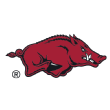
Arkansas Razorbacks
Their road to Omaha: 46-18; No. 5 national seed; first (tie) in the SEC West; won Fayetteville Regional and Starkville Super Regional, defeating Central Connecticut, TCU and No. 12 national seed Ole Miss
CWS history: 10th CWS appearance; best finish: second in 1979 and 2018
Their key: Isaiah Campbell, RHP
2:10
The Razorbacks’ offense overpowers the Rebels in Game 3 of the Fayetteville Super Regional, defeating Ole Miss in convincing fashion 14-1.
Storylines: The OmaHogs have been on a revenge tour in 2019, eager to reclaim the CWS title that was in their grasp one year ago, when they won the first game of the CWS championship series and were a popout away from clinching the title before they lost two in a row to Oregon State. If “been there, done that” is truly a key to winning a national title, the Hogs might have the biggest advantage in the 2019 field. A big percentage of the 2018 starters are gone, but the ones who are left have been like a second coaching staff in the clubhouse. “Did you watch the way our players acted when they won today?” head coach Dave Van Horn said after the Razorbacks won their regional title over TCU without a hint of a celebratory dogpile. “It’s like just another game because they know they accomplished something, but they haven’t accomplished what we’re really trying to do.”
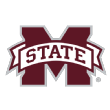
Mississippi State Bulldogs
Their road to Omaha: 51-13; No. 6 national seed; first (tie) in the SEC West; won Starkville Regional and Super Regional, defeating Southern, Central Michigan, Miami and No. 11 national seed Stanford
CWS history: 11th CWS appearance, third in seven years and a returnee from 2018; best finish: second in 2013
Their key: Ethan Small, LHP
2:07
With precise hitting and power, Mississippi State finishes off Stanford 8-1 and heads back to the College World Series.
Storylines: The Bulldogs are still fighting to be removed from the “What’s the best program never to win the College World Series?” debate. Their chances of finally breaking that Omaha curse got a shot in the arm when senior outfielder and all-time SEC hits leader Jake Mangum snapped out of a brutal slump in the regional and kept it rolling against Stanford in the supers. This is a roster packed with upperclassmen — including a graduate student closer — who survived a bizarre start-of-season coaching change in 2018 and survived this year’s SEC regular-season wars to make it to Omaha for the second straight summer. If you don’t like the clang of cowbells, you’re gonna need some earplugs at TD Ameritrade Park.
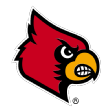
Louisville Cardinals
Their road to Omaha: 48-16; No. 7 national seed; ACC regular-season champs; won Louisville Regional and Super Regional, defeating Illinois-Chicago, Illinois State, Indiana and No. 10 national seed East Carolina
CWS history: Fifth CWS appearance, all since 2007; best finish: fifth in 2007 and 2017
Their key: Reid Detmers, LHP
0:30
Louisville’s Bobby Miller loses his no-hitter with no outs in the ninth inning en route to a victory over East Carolina.
Storylines: Head coach Dan McDonnell took the reins in 2007 and immediately led the Cardinals to Omaha for the first time in program history. Only once in his 15 seasons has Louisville failed to make the NCAA tournament, and eight of those dozen seasons have ended with at least a super regional berth. Pitching depth has always been a McDonnell staple, and this team carries four legit starters, led by the lefty K machine Detmers, who rallied from a rough start to become ACC Pitcher of the Year. Likewise, his team rallied from a shockingly flat ACC tourney performance and early regional loss to Illinois State. The Cardinals made it back to Omaha by steamrollering East Carolina 26-2 in two super regional games and scoring nine or more runs in four of five straight postseason wins.

Texas Tech Red Raiders
Their road to Omaha: 44-18; No. 8 national seed; Big 12 regular-season champs; won Lubbock Regional and Super Regional, defeating Army, Dallas Baptist and No. 9 national seed Oklahoma State
CWS history: Fourth CWS appearance, all since 2014; best finish: fifth in 2016 and 2018
Their key: Josh Jung, 3B
Storylines: Tim Tadlock’s team is all about the fundamentals. They score a lot of runs without a ton of homers, their bullpen is nearly bulletproof, and you’re more likely to see a UFO in Lubbock than an awful defensive play. They are particularly tough at home — just ask Oklahoma State, which got swept at Rip Griffin Park in April and went down in the Lubbock Super Regional too. But now the Raiders’ challenge — it’s not a new one — is to figure out how to pack that magic in their luggage and take it to Omaha. The Red Raiders made it to the CWS for the first time in 2014 and are going back for the fourth time. But in their three previous appearances, they are 2-6.
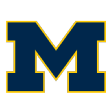
Michigan Wolverines
Their road to Omaha: 46-20; Big Ten regular-season runner-up; won Corvallis Regional and Los Angeles Super Regional, defeating Creighton, Cincinnati and No. 1 national seed UCLA
CWS history: Eighth CWS appearance, first since 1984; best finish: first in 1953 and 1962
Their key(s): The Jordans: Jordan Nwogu and Jordan Brewer, OFs
0:50
Michigan takes down UCLA 4-2 to win the series and advance to the College World Series for the first time since 1984.
Storylines: If there is ever going to be a scenario in which even the most bitter of Big Ten rivals will root for the Wolverines in anything, this is it. Why? Because Michigan isn’t merely making its first trip to Omaha since 1984, when Barry Larkin and Chris Sabo were in the infield and Jim Abbott was on the mound. The entire B1G conference has been back to the CWS only one time since, when Indiana crashed the sun belt’s summer party in 2013. The last of the league’s six CWS titles came via Ohio State in 1966. And with these guys, you can forget the “but they’ve never been to Omaha!” stuff. They just traveled west twice in two weeks, walked into the homes of the defending national champions and the No. 1 team in the nation, and did a couple of dogpiles.

Florida State Seminoles
Their road to Omaha: 41-21; third place in the ACC Atlantic; won Athens Regional and Baton Rouge Super Regional by defeating Florida Atlantic, No. 4 national seed Georgia and No. 13 national seed LSU
CWS history: 23rd CWS appearance, third-most all time, and second trip in three years; best finish: Second, three times (1970, ’86, ’99)
Their key: Drew Mendoza, 3B
0:34
The Seminoles head to the College World Series in Omaha after a walk-off base hit from Drew Mendoza.
Storylines: No matter how one might feel about the Seminoles, there’s no one in college baseball who isn’t joining in on the slow clap for FSU’s unforeseen run to Omaha because there’s also no one in college baseball who doesn’t have the greatest respect for retiring head coach Mike Martin. The man they call simply “11” owns a staggering stat sheet. He’s the sport’s all-time wins leader, last weekend he posted his 40th consecutive 40-win season (every year he has been at the helm in Tallahassee), and FSU just made its 17th super regional appearance … and the Super Regional Era is only 21 years old. A program that has produced more than 200 MLB draft picks on his watch, including four last week, perhaps hasn’t produced a more surprising Omaha run than this one. An unranked team that was barely at the ACC tournament won on the road against a pair of national seeds. Martin’s most infamous stat? He’s 0-for-life in championships in Omaha, including his visits as a player and assistant coach. After so many years as disappointing CWS favorites, these Seminoles are the underdogs of the 2019 field. It’d be the best walk-off ever if Martin’s team pulled this off.
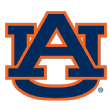
Auburn Tigers
Their road to Omaha: 38-26; sixth place in the SEC West; won Atlanta Regional and Chapel Hill Super Regional, defeating Coastal Carolina, No. 3 national seed Georgia Tech and No. 14 national seed UNC
CWS history: Fifth CWS appearance, first since 1997; best finish: fourth in 1967
Their key: Tanner Burns, RHP (if healthy)
1:41
Auburn opens the crucial third game of the series with 13 runs in the first inning of its 14-7 rout of North Carolina.
Storylines: This is not the Auburn team that was going to snap the school’s embarrassing 20-plus-year CWS appearance drought. That was supposed to be last year’s team, led by No. 1 MLB draft pick Casey Mize, but those Tigers had their hearts broken by Florida in the super regional. This year it was Auburn who did the postseason heartbreaking, led by a pitching staff that has been held together by Band-Aids all season. They lost ace Davis Daniel, then missed replacement ace Tanner Burns and lefty Jack Owen for big chunks of the spring. All of this happened while the bats that were supposed to be their biggest strength went MIA midseason. But bolstered by the emotions of the loss of longtime radio voice Rod Bramblett during the SEC tournament, the Tigers somehow powered their way back to Omaha for the first time since the Clinton administration. The game that clinched their CWS berth was full of good signs that those two issues have vanished at the right time. A 14-7 win at UNC started with two strong innings from Burns, and it was the second-highest scoring inning in NCAA postseason history.
Credit: Source link